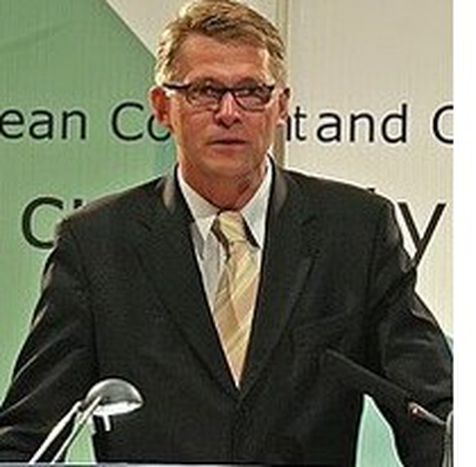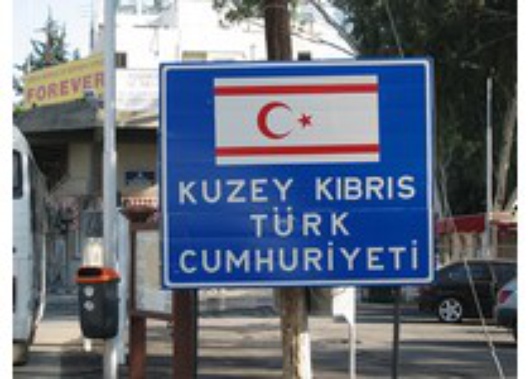
EU Presidency: the Finns bow out
Published on
It’s not only the final European council of 2006 that is taking place between 14 - 15 December. It also marks the swan song of the Finnish presidency, which will be heard by EU leaders in Brussels
A meeting of EU foreign ministers on Monday punished Turkey’s candidature, by ‘partially freezing’ eight chapters in the Ankara negotiation talks. Has this issue literally pulled the final curtain across the Finnish presidency?
The Finns are no first-timers in the EU presidency business. Former prime minister Paavo Lipponen’s government’s stint in 1999 was hailed as a success. Amongst other things, they helped pave the rocky road to Turkish candidacy.
Second time unlucky?
The first opportunity to present the EU as an international actor came with the Lebanon war this summer. The presidents echoed the UN’s pleas to Israel, with a call for the ‘immediate cessation of hostilities’ and condemnation of the ‘disproportionate use of force’. At a meeting ironically entitled ‘a Europe of results’ this month, Finnish prime minister Matti Vanhanen reported how good an example ‘our rapid reaction’ to the Middle East crisis was. ‘The EU showed its ability to act. We sent a considerable number of troops to reinforce the UN operation.’ However, criticism mounted against the Finns leading the EU in an anti-Israel line.
 The successes that the presidency has claimed in their defence, are in the smaller dossiers. For example, an agreement was achieved on the ‘services directive’, creating a common legal framework for the service providers in the internal market. A huge climate and biodiversity campaign took over Brussels. The emissions trading regulation was justly reviewed.
The successes that the presidency has claimed in their defence, are in the smaller dossiers. For example, an agreement was achieved on the ‘services directive’, creating a common legal framework for the service providers in the internal market. A huge climate and biodiversity campaign took over Brussels. The emissions trading regulation was justly reviewed.
The Finns proved themselves with bigger topics too, such as Russia and a focus on energy, with the Lahti summit consolidating their external priorities on October 20. But the deathbed accusation of the Russian spy Alexander Litvinenko, directly aimed at the Russian president, ‘coincided’ unfortunately with ‘fruitful and frank discussions’ at the EU summit hosted in Helsinki on November 24. Putin upstaged the Finns' seriousness, by accusing Italy of being the mafia’s birthmother.
But projects such as the 'REACH' chemical regulation, which the Finns have been telling us they are finalising for the past six months, cannot be added to these successes. There was a clear lack of hard-hitting achievements. Like movement on the constitution, for example.
Three-wheeled cars
‘They have pressed on with the belief that all is well with the EU constitution,’ says eurosceptic Nigel Farage, party leader of the UK independence party (UKIP). The Finns were to work on the union's 50th birthday declaration next year, commemorating the Treaties of Rome (March 25). When the presidency swings round to Germany, are constitution talks really expected to go into orbit. But ‘the gap between the public and the politicians is even wider after six months of the Finns,’ warns Farage.
It’s a comment that the Turkish public would certainly agree with. Enlargement loomed largest and loudest on the agenda. Admitting Bulgaria and Romania into the EU for the 1st January 2007 (whilst Finland ratified the constitution on home soil) were mere processes left to the Finns to complete mechanically. Farage’s cynicism is clear. ‘It is difficult to think of a measure with less public support, given the huge migration already seen from the 2004 entrants. These two countries are even poorer,’ he told us. And what about potentially the poorest candidate of a future EU – Turkey?
Eleventh hour
 Turkey’s verbal concession to Finland - to open up one port and one airport - was given on December 7, at ‘five minutes to midnight’, as described by Camiel Eurlings, Dutch conservative member of the European parliament. Currently, all trade to northern Cyprus is isolated, and Turkish ports are closed to Greek Cypriot vessels. Turkey’s alleged pledge showed that the stand-off wasn’t quite as Mexican as had been publicly feared. The Finnish EU Commissioner for Enlargement, Olli Rehn, went from talking of ‘train crashes’ to ‘elephants in china shops’. But in the end, his country’s presidency clearly announced they couldn’t break through on trade talks between Cyprus and Turkey.
Turkey’s verbal concession to Finland - to open up one port and one airport - was given on December 7, at ‘five minutes to midnight’, as described by Camiel Eurlings, Dutch conservative member of the European parliament. Currently, all trade to northern Cyprus is isolated, and Turkish ports are closed to Greek Cypriot vessels. Turkey’s alleged pledge showed that the stand-off wasn’t quite as Mexican as had been publicly feared. The Finnish EU Commissioner for Enlargement, Olli Rehn, went from talking of ‘train crashes’ to ‘elephants in china shops’. But in the end, his country’s presidency clearly announced they couldn’t break through on trade talks between Cyprus and Turkey.
The Finns’ final ‘sauna’ diplomatic efforts in Tampere did not bear fruit. The Cypriot foreign minister George Lillikas shut his door on the Finnish minister of foreign affairs Erkki Tuomioja (whose father Sakari was UN envoy to Cyprus in 1963), as did the Turkish foreign minister Abdullah Gul. Turkey seemingly only conceded when the EU came forward and did the Finns’ job for them. People ‘talked’ a lot in this presidency, and ultimately little was actually said. The Turkish wheel, which stopped the Finns swift passage on the Cyprus resolution, is not yet rolling.
The Finns introduced themselves at the beginning of their presidency by stressing the ‘50/ 50’ chance of success they expected to have. Six months on, and the glass remains half empty. Rather than rapping Finnish knuckles, perhaps we should focus on the real issue - six months is not long enough for any country to successfully head the EU.



